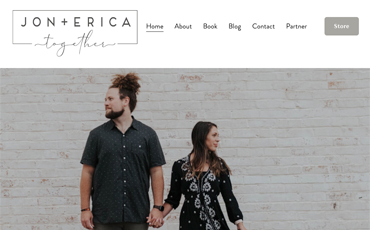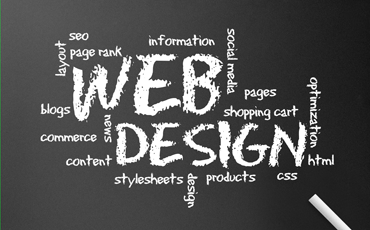Your Home
Dynamics of a Successful Book Lesson 6Once you’ve created a spark of interest out there on the highways and byways of the real and digital worlds, where do you bring your potential readers to learn more about you and your message? You bring them to your website; in the digital world, that’s your home.
Steve Spillman, Founder, True Potential
“Create a website that expresses something about who you are that won’t fit into the template available to you on a social networking site.”
Lesson 6:
Three questions to ask about your website.
Question 1: Why do I need a website?
Your website is your home
If you’re an author or planning to be an author, you need to have your own website. Think of your website as your digital home.
Social Media platforms are great. They allow you to “go out” into the digital world, share your message and interact with others. But think of Social Media platforms as public places, like the mall. They’re a great place to shop, meet your friends, make new friends, share your ideas, and learn some new ideas, but they’re not your home. You own your home and you make your own rules there. Other people own Social Media platforms; you can join and take advantage of what they have to offer, but they make the rules, and they can “un-join” you if they choose.
Your strategy should be to use Social Media to share your ideas, gain friends, fans, and followers, and then invite them “home” to your website to share your ideas at greater length (blog), to invite them to deepen the relationship (mailing list) and to sell your book!
If selling your book and establishing yourself as an author is important to you, then having your own website is a requirement. You can build your own website or have one professionally built, but beware, all websites aren’t equal. Your site must promote you as an author, share your message, increase your audience and sell books!
Question 2: What kind of website should I choose?
If you don’t have a website, it’s pretty easy to set up a simple website yourself for free or for a nominal monthly fee. It takes time and work and learning, but that’s the price for “free.”
We recommend WordPress as a website platform. To start your own, for free, go to www.wordpress.com. Eventually, you’ll want to upgrade to a “self-hosted” WordPress website (wordpress.org), which I recommend, for not much money. wpbeginner.com is a great resource for WordPress beginners.
There are other popular website platforms, including Wix, Weebly, Squarespace, and Shopify. These are primarily e-commerce platforms designed to create simple, attractive, easy-to-use websites that sell your product. They include the ability to create new pages and blog posts, as well as sell your book. These platforms either offer a free level or a free trial period, but the capability of the free and basic levels is severely limited. Only by upgrading your subscription (anywhere from $26 to 299 per month) will you get the functionality you may need. There’s another potential problem with these platforms; if you ever want to end the relationship you can’t take your website with you. The design (theme) and operating program are proprietary to the platform. If you’re lucky, you may able to export the content you added to their theme, but not the website, not the store, and possibly not even your website address (URL). If you want to break up be prepared to start again from scratch.
That’s why we recommend WordPress. If you’re going to go through the effort of building your home, make sure you’re the one who owns it.
Question 3: What should I include on my website?
Your local butcher’s website may be great for the butcher, but not for you as an author. Before you or someone you hire begin building your website, understand what the website is supposed to accomplish. For authors, there are four basic reasons for your site to exist:
- Promote your book.
- Share your thoughts and receive comments from your audience.
- Allow readers to purchase your book and e-book.
- Serve as a portal to and from other places (Social Media)
I recommend the pages and capabilities below for any author website. These are included in each author website we build:
- Home Page
- About Page (the author’s bio and reason for the book)
- Book page (cover illustration, blurb, sample the book, buy buttons for print and digital editions)
- Blog (author’s blog integrated into the site)
- Contact Page (form for readers/viewers to send secure comments to the author without posting the author’s e-mail).
- Endorsements Page (where fan endorsements and articles/blog posts about the book are displayed.
- Links Page (where links relative to your work or the book are available)
- Social Media integration (Like, Share, Tweet integration, plus auto-post to Social Media – your blog posts automatically post to your Facebook and Twitter pages).
Homework
Don’t have an author website yet?
- Visit https://www.wpbeginner.com/start-a-wordpress-blog/. Read the post, watch the video, start your free WordPress website.
Already have an author website?
- Do you have the pages I’ve listed above on your website?
- If any of those pages are empty or old, update them.
- Can your book be purchased directly from your site or a link on your site?
Hey! Do you have a question for me about this lesson? I’d love to give you an answer! Just scroll down to the comment section below and ask away.
⇐ Click here for lesson 5:
Your Audience
Click here for lesson 7: ⇒
Your Network
We’d love to help you reach the world with your book. Just let us know where you are in the publishing process by completing the form below. Talk to you soon!




Did you use WordPress for this teaching? Do you offer services to help set up a website using WordPress (or any other site)?
Excellent stuff
Hi Ron,
Thank you for your comment! Yes, we’ve been using WordPress since 2008. We use WordPress because of the amount of control and customizability it allows. We have set up several websites for our authors in WordPress. Today, however, we are exploring other platforms, like Wix, for some authors. Wix is more limited than WordPress, but the platform is very easy for those not familiar with building and maintaining websites. Wix also has a built-in shopping cart, which makes it easy for authors to sell books from their websites.